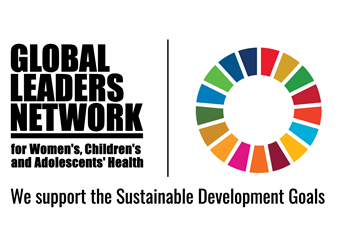Against the backdrop of an increasingly volatile global landscape where Official Development Assistance (ODA) streams are under threat, the need for increased investments in high-impact interventions to reduce maternal, child and adolescent mortality has never been greater.
Focal points from the Global Leaders Network, including Ministers of Health and other government representatives, held an inaugural meeting on 9 December 2024 to discuss opportunities for securing predictable and sustainable financing to achieve the Sustainable Development Goals (SDGs) on women’s, children’s and adolescents’ health - and in particular the reduction of neonatal, maternal and under-five mortality.
The discussions emphasized the urgent need for increased investments to boost progress on a number of shared priorities such as addressing adolescent and teenage pregnancy; ensuring equitable access to health services; and developing localised manufacturing. Discussants recommended the setup of a special pooled funding mechanism for sexual, reproductive, maternal, newborn and child health commodities.
"Our leaders have an opportunity to leave a lasting legacy that can impact billions of lives - we dare not miss this opportunity, we dare not fail any woman, child or adolescent," said Hon. Dr. Pakishe Aaron Motsoaledi, Minister of Health of the Republic of South Africa, in his opening address.
The 77th World Health Assembly saw 194 countries pass a resolution on accelerating progress to reduce maternal, newborn and child mortality and to prioritizing sexual and reproductive health. World Health Organization (WHO) Director General, Dr. Tedros Adhanom Ghebreyesus, cautioned that considerable efforts would be required to reach these goals.
"It won't just happen. We need policies and investments to advance women's, children's and adolescents' health through high quality, equitable and affordable primary health care. Ultimately these are investments not just in health, but in communities, societies and economies," he said. "WHO is committed to working with and supporting the Global Leaders Network to improve the health of women, children and adolescents everywhere."
GLN partners - the United Nations Population Fund (UNFPA), United Nations Children’s Fund (UNICEF), the African Union Commission Division of Health, Humanitarian Affairs and Social Development and the Africa Centres for Disease Control and Prevention (Africa CDC), also pledged to support the GLN initiative.
Moving forward, the GLN focal points agreed to provide further details on country-specific priorities - an important step that will help guide policy discussions ahead of the GLN Heads of State meeting scheduled for 2025. This process will also facilitate the consolidation of advocacy messages, ensuring that they are in-line with national priorities, in advance of high-level events such as the G7, the G20, the African Union Summit, which will be crucial platforms to elevate women’s, children’s and adolescents’ health advocacy to the highest political agenda.
Launched in 2023, the GLN is the first and only Southern-led global health diplomacy initiative to support the attainment of the 2030 Sustainable Development Goals related to women, children and adolescents. As the network continues to expand, so does our ambition and potential.

.png?sfvrsn=6d0e27cd_1)




